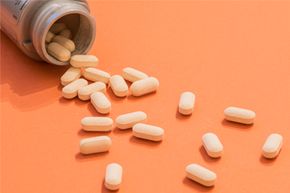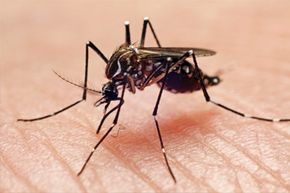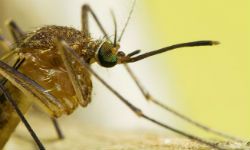First things first: What the heck is dengue (DENG-gey) fever, and how do you get it?
The disease, which typically isn't fatal, is mostly found in tropical and sub-tropical areas. That makes sense when you consider that it's spread by mosquitoes. Rather than spreading from person to person, the disease makes its way around when a pesky mosquito bites a carrier of one of the four dengue viruses, then chomps on a healthy person. The vast majority of cases reported in the continental United States have been among travelers or immigrants.
Advertisement
Despite being a relative newcomer — dengue fever has been a serious problem only since the 1950s — about 400 million people are infected each year [source: CDC].
Some cases are so mild that patients don't experience any symptoms. However, if you do have symptoms, they usually surface four to 10 days after a bite from an infected mosquito. Look out for the following issues [source: CDC]:
- High fever (up to 106°F)
- Muscle and joint pain
- Rash
- Nausea
- Severe pain behind the eyes
- Low blood platelet count (thrombocytopenia)
If you develop any of these symptoms and have recently visited a region where dengue fever is known to occur, visit a doctor as soon as possible. If you catch dengue fever more than once (which you can because, remember, there are four types of dengue viruses lurking out there), each subsequent infection can increase your chances of developing dengue hemorrhagic fever, a separate and more severe version of the disease that can cause serious bleeding, shock and possibly death.
As of this writing, there is no vaccine or cure for dengue fever, so the best way to stop it is through prevention. Mosquito nets, repellent and the reduction of mosquito breeding grounds are the most efficient ways to cut down on dengue fever outbreaks.
Once someone contracts dengue fever, there are only a few ways for medical professionals to treat it [source: CDC]:
- Pain relievers containing only acetaminophen (ibuprofen and aspirin can increase bleeding)
- Rest
- Increased fluid intake
- Avoidance of mosquitoes, especially while feverish
While most people recover in about a week, more serious symptoms may result in hospitalization.
However, there's been some interesting talk recently about the treatment and prevention of dengue fever. We're not talking miracle drugs, either. Many people are claiming you can prevent and treat dengue fever with something easy to find that naturally occurs in the foods you eat or supplements you take: vitamin C.
Could it be that easy? Is there legitimate science behind this claim?
Advertisement



